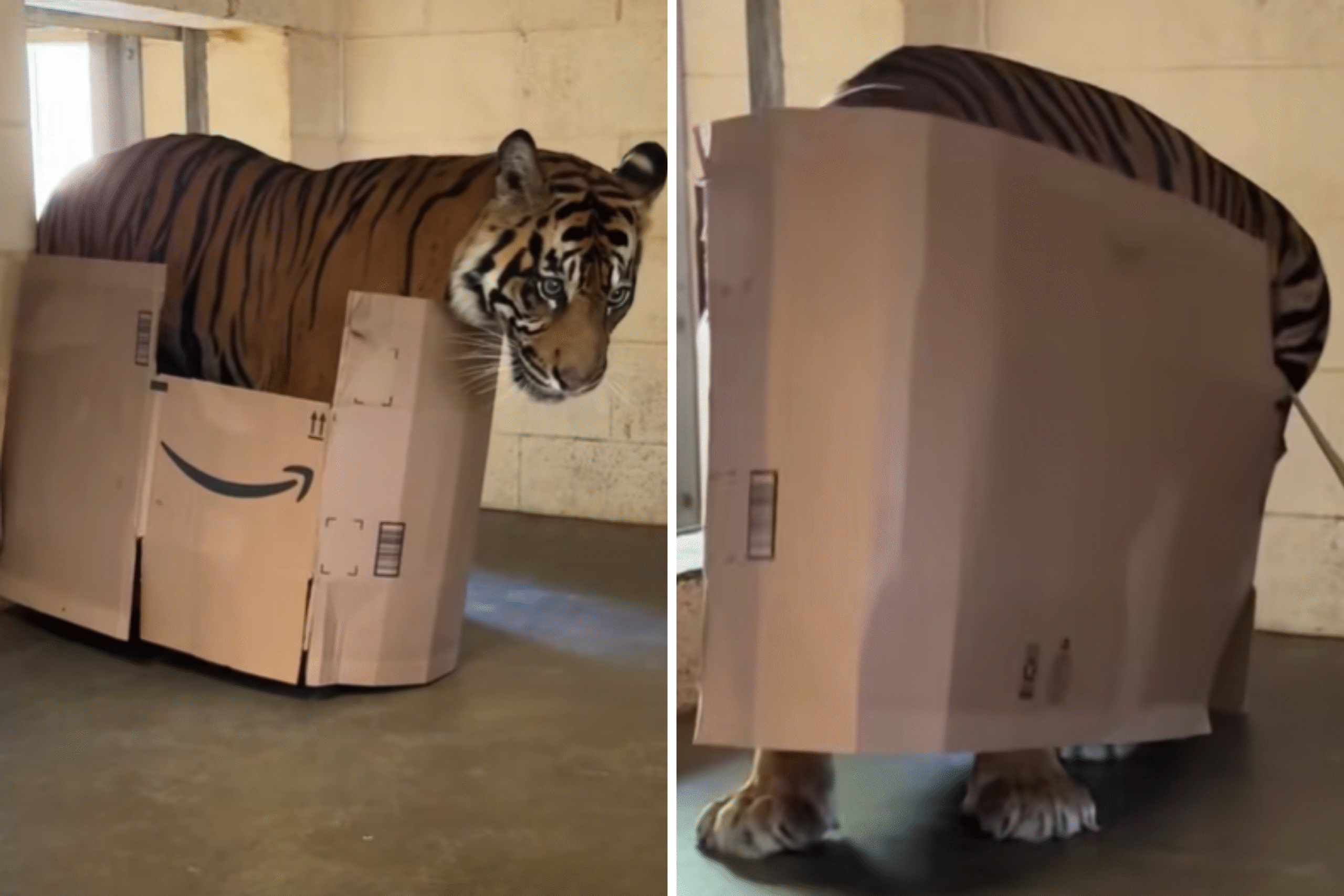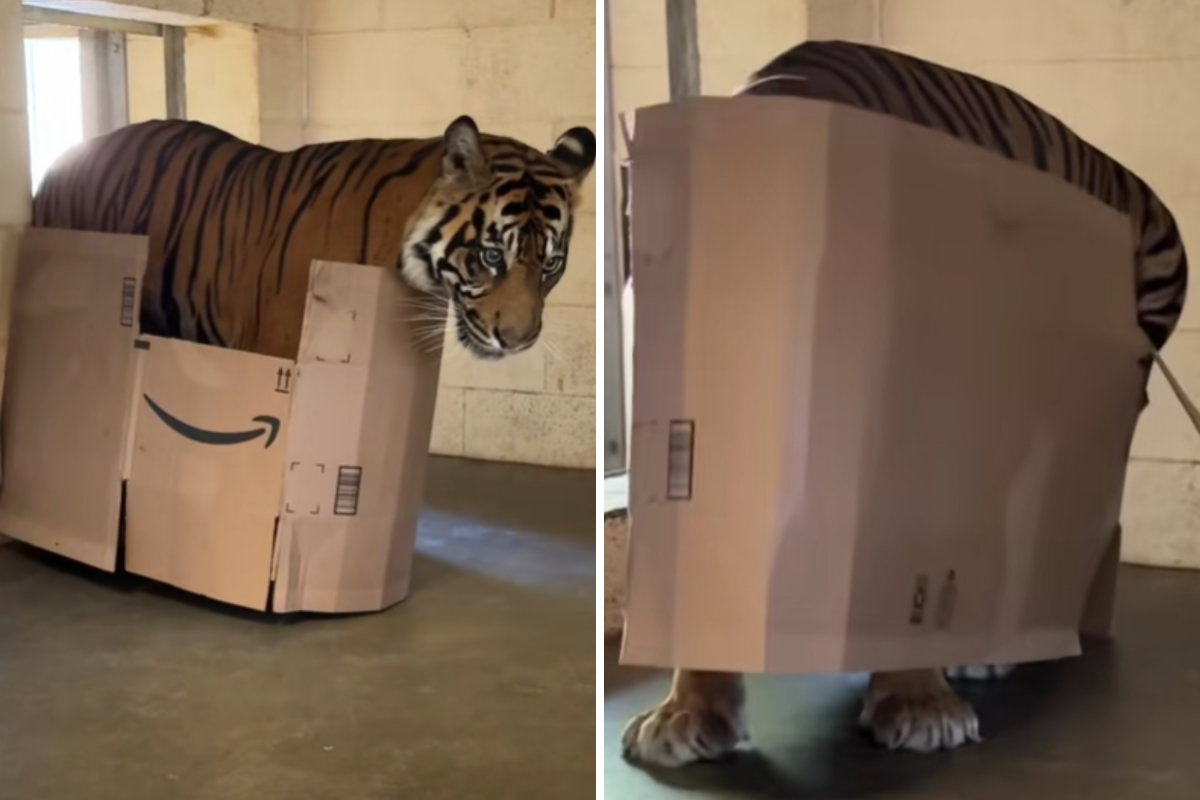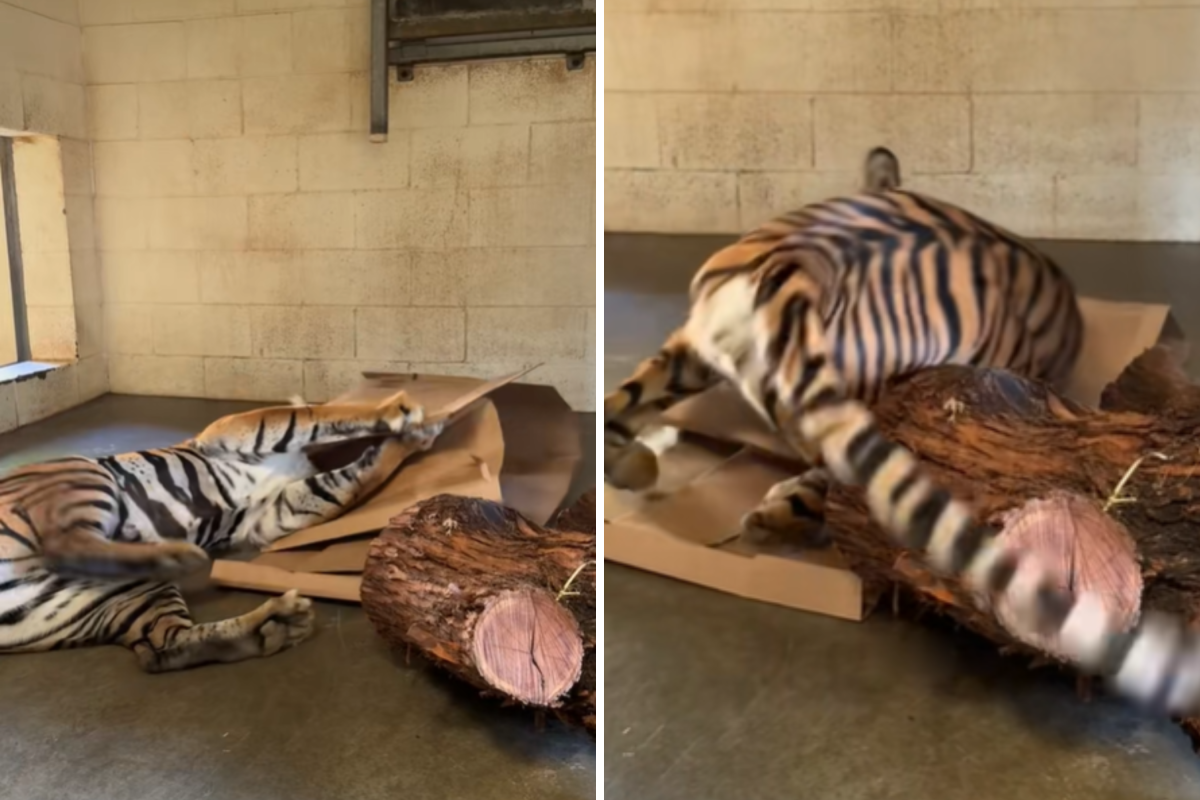
Animal lovers were awed by an enormous tiger acting just like a domestic pet cat as she settled into a carboard box.
Joanne is a 15-year-old Sumatran tiger living at the Phoenix Zoo, where she’s cared for by senior carnivore keeper Alyssa.
Part of Joanne’s care is “behavioral enrichment,” to help provide a mentally and physically stimulating environment to prevent boredom and promote species-specific behaviors.
Alyssa told Newsweek this can include “large plastic toys, feathers, spices, extracts, paper bags, and much more.” “Most of our cats (big and small) like cardboard boxes for enrichment, but Joanne in particular really loves them,” she said.
This was clear to see in a viral video to Phoenix Zoo’s TikTok account, @phoenixzoo, on September 8, which has been viewed more than 3 million times. In a caption, the zoo highlighted how Joanne’s behavior might look very familiar to those who own a pet cat, as they wrote: “If I fits, I sits“—the playful term used when a cat tries to settle onto any object, no matter how small.
The video shows Joanne curiously interacting with a large cardboard box that had been sprayed with perfume, as Alyssa explained: “Cats have an amazing sense of smell, as well as they really like tactile objects…it’s enticing for them to investigate. Besides laying in them, our cats also scratch on them, scent mark them and tear them into pieces.”
Joanne flattens the giant box, before sitting on it, lying down on it, and rubbing herself all over it. Her back legs kick, and her claws start ripping the cardboard before she flips onto her belly with the box underneath—and finally, she drags it back into an upright position and jumps into it.

TikTok @phoenixzoo
But she’s not ready to settle down quite yet, as she moves around inside the box, trying to flip it over herself, and walking in tight circles with the box still surrounding her.
Alyssa told Newsweek: “We love to promote natural behaviors they would mimic in the wild, but we can be limited in how to elicit these behaviors. By using some modern items, but still relying on their natural instincts, we can make some fun enrichment for the tigers—and us—to enjoy.”
TikTok viewers certainly enjoyed it, awarding the video more than 630,000 likes, as one shared a screengrab of Joanne goofily wearing the box as a hat and wrote: “The most dangerous animal on this planet.”
Another joked: “I can see why our ancestors saw big cats and were like yeah I’m gonna need a domesticated version of that.”
And as one put it: “I love that cats are just cats, no matter the font.”
Alyssa says there are many ways tigers are like domestic cats, as she told Newsweek: “Besides playing with cardboard boxes and trying to squeeze into them, we often see our tigers climbing trees, scratching, rolling on scents, and even interacting with their keepers by greeting us with chuffs—the equivalent of a meow in ‘tiger language.'”

TikTok @phoenixzoo
She warned, however: “Tigers are apex predators and rely heavily on their hunting skills, so they are not completely the same as domestic cats. We always work protected contact with our tigers, meaning there’s always some kind of barrier between them and us. This is in effort to keep not only us safe, but the tigers as well.”
Sumatran tigers like Joanne are critically endangered, with only around 400 remaining in the wild, Alyssa said. Many of the remaining wild tigers live in protected areas such as national parks, with rangers doing anti-poaching patrols for extra protection, according to National Geographic.
“Conservation of this species is critical,” Alyssa told Newsweek. “By coming to the Phoenix Zoo and other AZA-accredited (Association of Zoos and Aquariums) facilities, people are helping with that conservation.
“And, hopefully in the future, population numbers will steadily increase.”
Do you have funny and adorable videos or pictures you want to share? Send them to life@newsweek.com with some extra details, and they could appear on our website.




